Table of Contents
Come join us now, and enjoy playing your beloved music and browse through great scores of every level and styles!
Can’t find the songbook you’re looking for? Please, email us at: sheetmusiclibrarypdf@gmail.com We’d like to help you!
Carousel Waltz — from the Musical Carousel by Richard Rodgers (Piano Solo sheet music, Noten)

Carousel is the second musical from the team of Richard Rodgers (music) and Oscar Hammerstein II (book and lyrics). The 1945 work was adapted from Ferenc Molnár’s 1909 play Liliom, which transplanted its Budapest setting to the Maine coast.
Best Sheet Music download from our Library.
It is a love story between Billy Bigelow, the worker of a horse attraction and a miller, Julie Jordan, which puts their jobs in danger. In order to help Julie and her unborn child, he tries to pull off a robbery, which goes wrong. Despite everything, he is given the opportunity to do things right.
A secondary plot line deals with mill worker Carrie Pipperidge and her romance with ambitious fisherman Enoch Snow. The show includes the well-known songs ‘If I Loved You’, ‘June Is Bustin’ Out All Over’ and ‘Never Walk Alone’. Richard Rodgers later wrote that Carousel was his favorite of all his musicals.
After the spectacular success of Rodgers and Hammerstein’s early musicals, Oklahoma! (1943), the pair sought to collaborate on another piece, knowing that any resulting work would be compared to Oklahoma!, most likely unfavorably. Initially they were reluctant to seek the rights to Liliom; Molnár had refused permission to adapt the play in the past, and the original ending was considered depressing for musical theater.
Please, subscribe to our Library.
If you are already a subscriber, please, check our NEW SCORES’ page every month for new sheet music. THANK YOU!
After acquiring the rights, the team created a work with long music sequences and made the ending more hopeful.
The musical required considerable modification during out-of-town tryouts, but once it opened on Broadway on April 19, 1945, it was an immediate hit with critics and audiences. Carousel initially ran for around 890 performances and doubled its success in the West End in 1950. Although it has never achieved as much commercial success as Oklahoma!, the play has been repeated and recorded several times.
A production by Nicholas Hytner was successful in 1992 in London, in 1994 in New York and on tour. In 1999, Time magazine named Carousel the best musical of the 20th century.
Rodgers designed Carousel to be an almost continuous stream of music, especially in Act 1. In later years, Rodgers was asked if he had considered writing an opera. He stated that he had been sorely tempted to, but saw Carousel in operatic terms. He remembered, “We came very close to opera in the Majestic Theatre. … There’s much that is operatic in the music.”
| Artist or Composer / Score name | Cover | List of Contents |
|---|---|---|
| World Of Hits Vol. 4 Birdland Piano Vocal Chords | World Of Hits Vol. 4 Birdland Piano Vocal Chords | |
| Wreck It Ralph Songbook Music From The Disney Motion Picture Soundtrack |
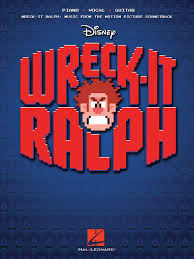 | Wreck It Ralph Songbook Music From The Disney Motion Picture Soundtrack |
| Wuthering Heights (Ryuichi Sakamoto) | ||
| Wynton Kelly – Autumn Leaves Solo transcription | Wynton Kelly – Autumn Leaves Solo transcription | |
| Wynton Kelly – Dark Eyes Solo Piano transcription |
 | |
| Wynton Kelly – Dark Eyes Solo Piano Transcription (Musescore File).mscz | ||
| Wynton Kelly – Full transcriptions | Wynton Kelly – Full transcriptions | |
| Wynton Kelly – I Dig of You Solo transcription |
 | |
| Wynton Kelly – If I should Love You Solo transcription |
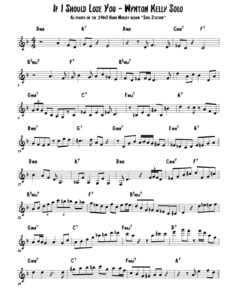 | |
| Wynton Kelly – Jazz Piano Collection |
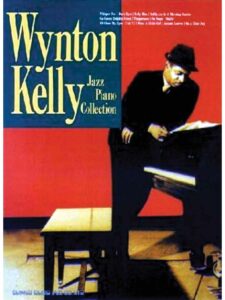 | Wynton Kelly Piano Collection- |
| Wynton Kelly – Someday my prince will come (Piano solo) |
 | |
| Wynton Kelly Dark Eyes Transcription | Wynton Kelly Dark Eyes Transcription | |
| Wynton Marsalis Trumpet Genius Gourse, Leslie (Book) |
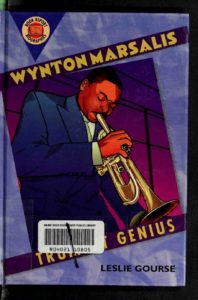 | |
| Wynton Marsalis – Caravan (Solo) |
 | |
| Wynton Marsalis – Darn That Dream (Solo) | Wynton Marsalis – Darn That Dream (Solo) | |
| Wynton Marsalis – Dealfayos Dillema (Solo) |
 | |
| Wynton Marsalis – Standards (sheet music transcriptions) |
 | Wynton Marsales – Standards (sheet music transcriptions) |
| Wynton Marsalis Carnaval 11 Solos For Cornet And Piano Arr. Donald Hunsberger (Vintage Book) 1988 |
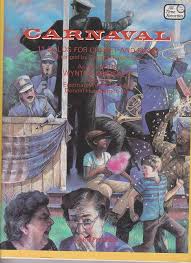 | Wynton Marsalis Carnaval 11 Solos For Cornet And Piano Arr. Donald Hunsberger (Vintage Book) 1988 |
| Wynton Marsalis In The Court Of King Oliver (Trumpet and rhythm section) |
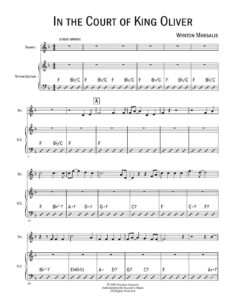 | |
| Wynton Marsalis Omnibook For Bb B Flat Instruments Transcribed exactly from his recorded solos |
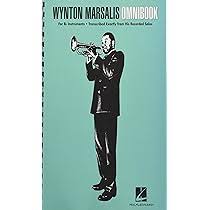 | Wynton Marsalis Omnibook For B Flat Instruments Transcribed exactly from his recorded solos |
| Wynton Marsalis Portrait of Louis Armstrong (Solo) | Wynton Marsalis Portrait of Louis Armstrong (Solo) | |
| Wynton Marsalis Struttin’ With Some Barbeque (Live) Wynton Marsalis’ Trumpet Solo |
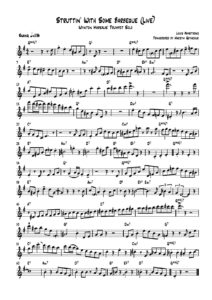 | |
| Xavier Cugat Xavier Cugat’s Favorite Collection Of Tangos And Rhumbas (Vintage) |
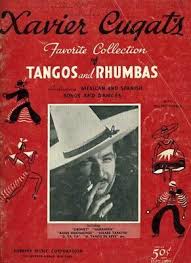 | Xavier Cugat Xavier Cugat’s Favorite Collection Of Tangos And Rhumbas (Vintage) |
| Xavier Montsalvatge Sonatine Pour Yvette Pour Piano |
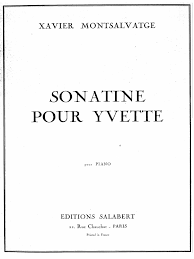 | |
| Xavier Montsalvatge Cinco canciones negras (piano) |
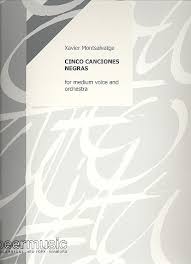 | |
| Xenakis Herma Musique Symbolique Pour Piano |
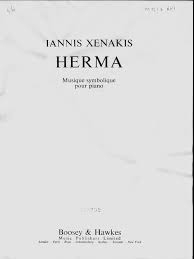 | |
| Xenakis, Iannis Mists For Piano |
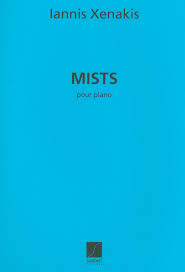 | |
| Xenoblade Chronicles 2 Loneliness Kenji Hiramatsu | Xenoblade Chronicles Opening Theme Game sheet music | |
| Xenoblade Chronicles Opening Theme Game sheet music Yoko Shimomura |
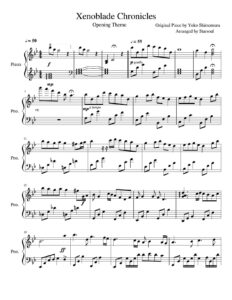 | |
| Xian Xinghai Yellow River Piano Concerto reduction for Four Hands piano |
 | |
| YAMAHA Classic Guitar Course 1 |
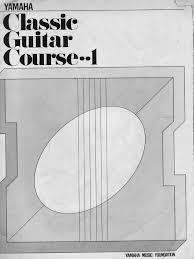 | YAMAHA Classic Guitar Course 1 |
| YAMAHA Classic Guitar Course 2 |
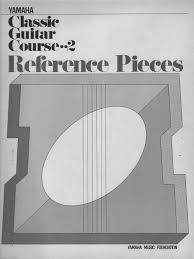 | YAMAHA Classic Guitar Course 2 |
| YAMAHA Classic Guitar Course 3 |
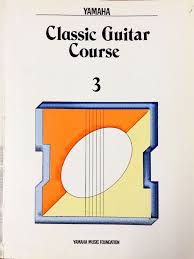 | YAMAHA Classic Guitar Course 3 |
| YAMAHA Classic Guitar Course Repertory |
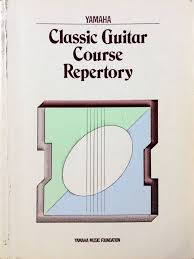 | YAMAHA Classic Guitar Course Repertory |
| Yamaha E443 Songbook digital keyboard PSR-E443 |
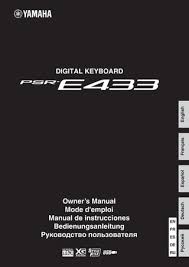 | |
| Yamaha Keyboard Songbook |
 | Yamaha Keyboard Songbook |
| Yamaha Keyboard Songbook Song-Buch |
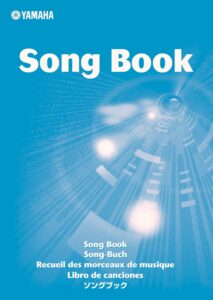 | |
| Yamaha PSR E373 YPT-370 PSR-EW310 Song book |
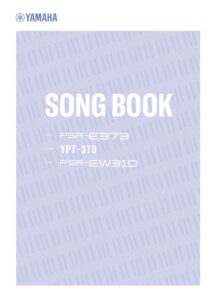 | |
| Yamaha Song Book |
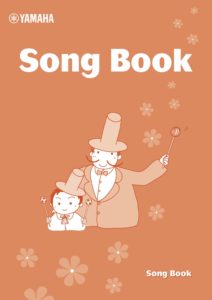 | Yamaha Song Book |
| Yamaha Song book |
 | Yamaha Songbook |
| Yamaha Songbook |
 | Yamaha-Songbook |
| Yamaha songbook 50 Piano Greats for the piano (Yamaha collection) |
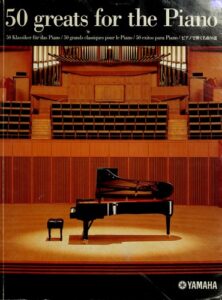 | 50 Piano Greats for the piano (Yamaha collection) |
| Yamaha Songbook Contemporary Vol. 1 |
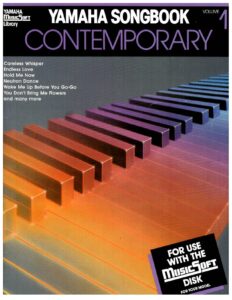 | Yamaha Songbook Contemporary Vol. 1 |
| Yana Bobalik Mysterious Music Я.Бобалік Songbook |
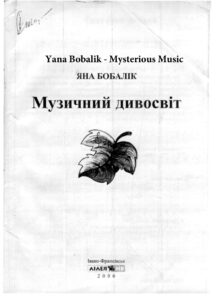 | |
| Yana Bobalik Secret Music From Mysterious Music Я.Бобалік Таемна Музыка |
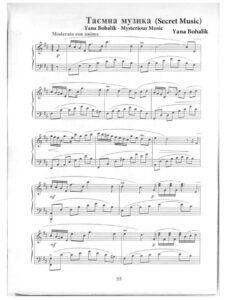 | |
| Yann Tiersen Rue des Cascades (sheet music) | yann tiersen cascades sheet-music | |
| Yann Tiersen Mother’s Journey |
 | |
| Yann Tiersen – Tabarly Sheet Music |
 | |
| Yann Tiersen – La Dispute – Amelie Poulain | ||
| Yann Tiersen – La Valse d’Amelie Poulain | Yann Tiersen – La Valse Damelie | |
| Yann Tiersen – Le moulin – Amelie Poulain | Le Moulin – Amelie Poulain | |
| Yann Tiersen – Six pièces pour piano – Volume 2 – Amélie Poulain |
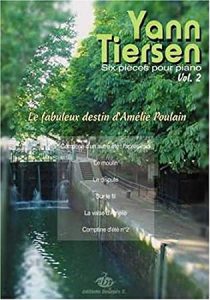 | Yann Tiersen – Six pieces pour piano – Volume 2 – Music Sheet |
| Yann Tiersen – Summer 78 | ||
| Yann Tiersen – Sur Le Fil |
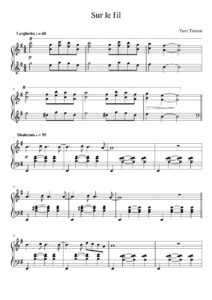 | |
| Yann Tiersen – Pièces pour piano vol 1 et 2 + divers |
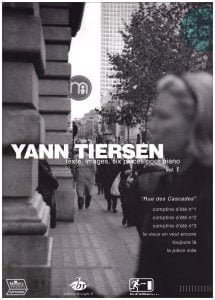 |
Yann Tiersen – pièces pour piano vol 1 et 2 + divers  |
| Yann Tiersen Comptine d’un autre été – Amelie Poulain | Comptine Yann tiersen sheet music | |
| Yann Tiersen Eusa 2015 Songbook |
 | |
| Yann Tiersen J’Y Suis Jamais Alle piano solo (Amélie) |
 | |
| Yann Tiersen Kerber Piano Solo | Yann Tiersen Kerber Piano Solo | |
| Yann Tiersen Onze Pièces Pour Piano |
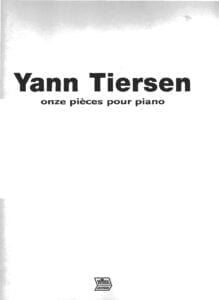 | Yann Tiersen Onze Pièces Pour Piano |
| Yann Tiersen Partitions intégrales Piano Works 1993-2004 | Yann Tiersen Partitions intégrales Piano Works 1993-2004 | |
| Yann Tiersen Piano Solo Arrangement Collection | Yann Tiersen Piano Solo Arrangement Collection | |
| Yann Tiersen Tabarly Complete Book For Piano |
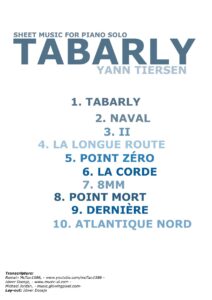 | |
| Yanni In My Time (Piano Solos) Sheet Music |
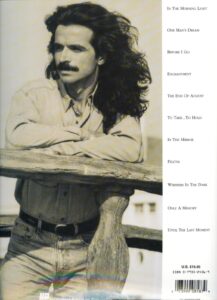 | Yanni In my time piano solos |
| Yanni One Man’s Dream |
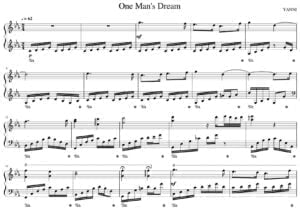 | |
| Yanni – Per Piano (Piano book) |
 | Yanni – Per Piano |
| Yanni – In The Morning Light | ||
| Yanni – Nostalgia | ||
| Yanni – One Man’s Dream (Musescore File).mscz | ||
| Yanni -The Best of |
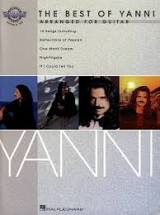 |
 |
| Yanni Ethnicity Piano Solo |
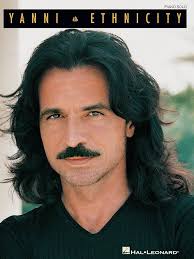 | Yanni Ethnicity Piano Solo |
| Yardbirds Songbook Guitar Tabs (Guitar Legends) |
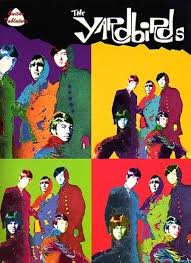 | Yardbirds Songbook Guitar Tabs (Guitar Legends) |
| Yaron Herman – Hallelujah (Leonard Cohen) transcription |
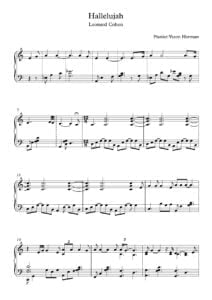 | |
| Yashal (Elisa) | ||
| Yasuharu Takanashi – Naruto Shippuden OST – Loneliness |
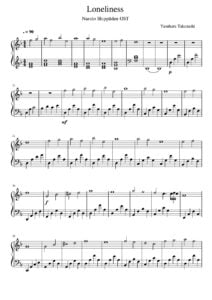 | |
| Yazoo Only You Piano Solo and Piano Vocal guitar | Yazoo Only You Piano Solo and Piano Vocal guitar | |
| Yedidia, Ronn Piano Sonata No 3 outcries (manuscrit) |
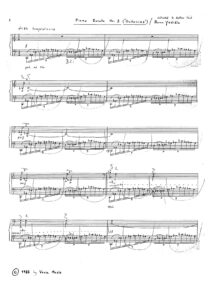 | |
| Yehezkel Raz Ballerina Piano Solo sheet music |
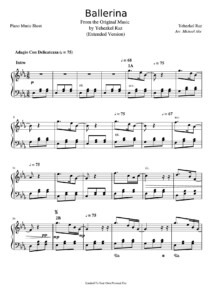 | |
| YES Fragile |
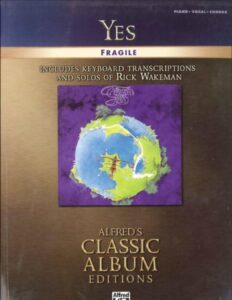 | YES Fragile |
| YES – Complete Deluxe Edition |
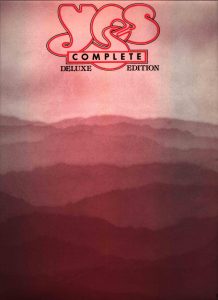 | YES – Complete Deluxe Edition |
| Yes Close To The Edge The Story Of Yes (Book) |
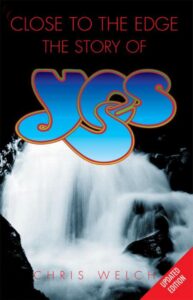 | |
| Yes Selections from Yesyears Authentic Guitar TAB (Authentic Guitar Tab Editions) |
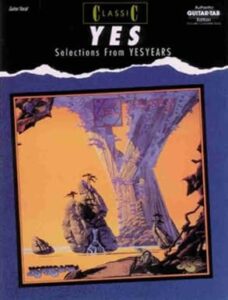 | Yes Selections from Yesyears Authentic Guitar TAB (Authentic Guitar Tab Editions) |
| Yes The Best Of Guitar Songbook with TABs |
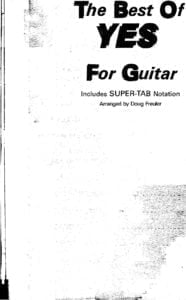 | Yes The Best Of Guitar Songbook |
| Yesterday Piano vocal guitar Songbook Featuring Music From the OST |
 | |
| Yesterday The Beatles For Jazz Piano (Musescore File).mscz | ||
| Yesterday The Piano Guys Yesterday for piano and cello (Lennon McCartney) |
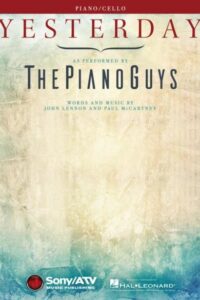 | |
| Yesterday when I was young (Charles Aznavour) | ||
| Yimkin Law ( Et maintenant on va où OST) Racha Rizk | ||
| Yiruma – 27 May | ||
| Yiruma – Destiny Of Love | ||
| Yiruma – Dream | ||
| Yiruma – Dream A Little Dream Of Me | Yiruma – Dream A Little Dream Of Me | |
| Yiruma – Falling | ||
| Yiruma – First Love – River Flows In You | Yiruma – First Love – River Flows In You | |
| Yiruma – Gabriel | ||
| Yiruma – Kiss the Rain | Yiruma Kiss the rain | |
| Yiruma – Kiss The Rain (Musescore File).mscz | ||
| Yiruma – Love Me | ||
| Yiruma – Maybe | ||
| Yiruma – Mikas Song | ||
| Yiruma – One Day I Will | ||
| Yiruma – Our Same Word | ||
| Yiruma – Passing By | ||
| Yiruma – Piano Album BOOK |
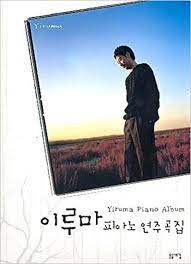 | Yiruma – Piano Album BOOK |
| Yiruma – River Flows In You | ||
| Yiruma – River Flows In You – 10th Anniversary Version (Piano) |
 | |
| Yiruma – River Flows In You – Guitar arr. with TABs | Yiruma – River Flows In You – Guitar arr | |
| Yiruma – Shining Smile | ||
| Yiruma – Sometimes Someone | ||
| Yiruma – Sunny Rain | ||
| Yiruma – Tears On Love | ||
| Yiruma – The Moment | ||
| Yiruma – Till I Find You | ||
| Yiruma – Time Forget | ||
| Yiruma – Wait There | ||
| Yiruma – When The Love Falls | ||
| Yiruma Be My First |
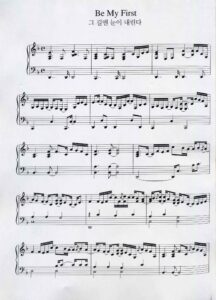 | |
| Yiruma Because I Love You | Yiruma Because I Love You | |
| Yiruma Blind Film | Yiruma Blind Film | |
| Yiruma Blind Improvisation for piano and cello | Yiruma Blind Improvisation for piano and cello | |
| Yiruma Dream A Little Dream Of Me Piano Solo |
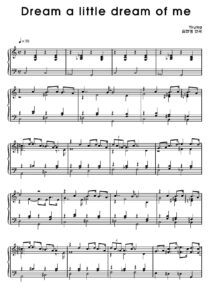 | |
| Yiruma Ending A Short Piece | Yiruma Ending A Short Piece | |
| Yiruma First Love Piano Solo |
 | |
| Yiruma Infinia (Musescore file).mscz | Musescore File | |
| Yiruma Infinia (이루마) (Piano Solo) | Yiruma Infinia (이루마) (Piano Solo) | |
| Yiruma Kiss The Rain |
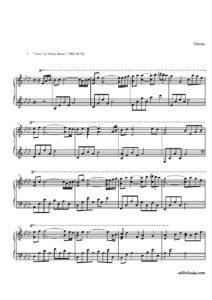 | |
| Yiruma Lost In Island | Yiruma Lost In Island | |
| Yiruma May Be |
 | |
| Yiruma My Memory | Yiruma My Memory | |
| Yiruma One Day Diary | Yiruma One Day Diary | |
| Yiruma Opening Playing The Scene | Yiruma Opening Playing The Scene | |
| Yiruma Piano Quartet No.1 In Ab A Flat | Yiruma Piano Quartet No.1 In AFlat | |
| Yiruma Poem |
 | |
| Yiruma Prelude in G Minor Piano Solo | Yiruma Prelude in G Minor Piano Solo | |
| Yiruma Reminiscent For Cello And Piano | Yiruma Reminiscent For Cello And Piano | |
| Yiruma River Flows In You Guitar Solo with Tablature |
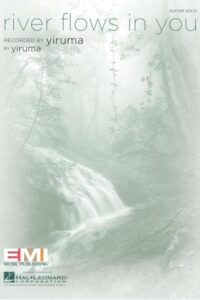 | |
| Yiruma River Flows In You Piano Solo |
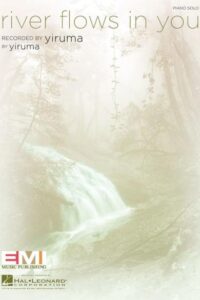 | |
| Yiruma Room With A View Sheet Music Songbook |
 | |
| Yiruma Serenade In Db D Flat | Yiruma Serenade In D Flat | |
| Yiruma Spring Waltz from SOLO | Yiruma Spring Waltz from SOLO | |
| Yiruma Stay In Memory | Yiruma Stay In Memory | |
| Yiruma Teardrop Waltz From Spring Waltz | Yiruma Teardrop Waltz From Spring Waltz | |
| Yiruma The Best Reminiscent 10th Anniversary Easy Piano |
 | Yiruma The Best Reminiscent 10th Anniversary Easy Piano |
| Yiruma The Collection |
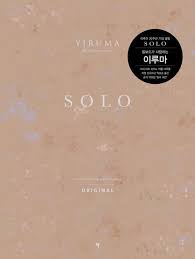 |
 |
| Yiruma Wait There |
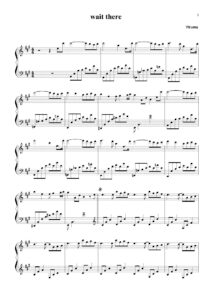 | |
| Yiruma Waltz In C Minor (From Blind Film) Piano Solo | Yiruma Waltz In C Minor (From Blind Film) Piano Solo | |
| Yiruma What Beautiful Stars Piano sheet music | Yiruma What Beautiful Stars Piano sheet music | |
| Yngwie Malmsteen Trilogy (Full Album, Full Score Guitar Tabs) |
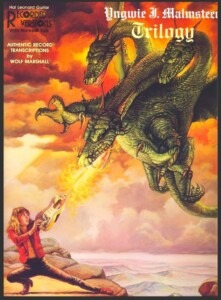 | |
| Yoasobi (Monster) Easy Piano Solo sheet music |
 | |
| Yoasobi Love Letter (ラブレター) Yoasobi Piano |
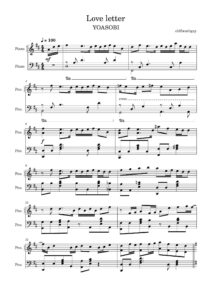 |
Musical numbers
| Act I “The Carousel Waltz” – Orchestra “You’re a Queer One, Julie Jordan” – Carrie Pipperidge and Julie Jordan “(When I Marry) Mister Snow” – Carrie “If I Loved You” – Billy Bigelow and Julie “June Is Bustin’ Out All Over” – Nettie Fowler and Chorus “(When I Marry) Mister Snow” (reprise) – Carrie, Enoch Snow and Female Chorus “When the Children Are Asleep” – Enoch and Carrie “Blow High, Blow Low” – Jigger Craigin, Billy and Male Chorus “Soliloquy” – Billy | Act II “This Was a Real Nice Clambake” – Carrie, Nettie, Julie, Enoch and Chorus “Geraniums in the Winder” – Enoch * “There’s Nothin’ So Bad for a Woman” – Jigger and Chorus “What’s the Use of Wond’rin’?” – Julie “You’ll Never Walk Alone” – Nettie “The Highest Judge of All” – Billy Ballet: “Billy Makes a Journey” – Orchestra “If I Loved You” (reprise) – Billy Finale: “You’ll Never Walk Alone” (reprise) – Company |
Rodgers uses music in Carousel in subtle ways to differentiate characters and tell the audience of their emotional state.
In “You’re a Queer One, Julie Jordan”, the music for the placid Carrie is characterized by even eighth-note rhythms, whereas the emotionally restless Julie’s music is marked by dotted eighths and sixteenths; this rhythm will characterize her throughout the show. When Billy whistles a snatch of the song, he selects Julie’s dotted notes rather than Carrie’s.
Reflecting the close association in the music between Julie and the as-yet unborn Louise, when Billy sings in “Soliloquy” of his daughter, who “gets hungry every night”, he uses Julie’s dotted rhythms. Such rhythms also characterize Julie’s Act 2 song, “What’s the Use of Wond’rin’”.
The stable love between Enoch and Carrie is strengthened by her willingness to let Enoch not only plan his entire life, but hers as well. This is reflected in “When the Children Are Asleep”, where the two sing in close harmony, but Enoch musically interrupts his intended’s turn at the chorus with the words “Dreams that won’t be interrupted”.
Rodgers biographer Geoffrey Block, in his book on the Broadway musical, points out that though Billy may strike his wife, he allows her musical themes to become a part of him and never interrupts her music.
Block suggests that, as reprehensible as Billy may be for his actions, Enoch requiring Carrie to act as “the little woman”, and his having nine children with her (more than she had found acceptable in “When the Children are Asleep”) can be considered to be even more abusive.
The twelve-minute “bench scene”, in which Billy and Julie get to know each other and which culminates with “If I Loved You”, according to Hischak, “is considered the most completely integrated piece of music-drama in the American musical theater”.
The scene is almost entirely drawn from Molnár and is one extended musical piece; Stephen Sondheim described it as “probably the single most important moment in the revolution of contemporary musicals”. “If I Loved You” has been recorded many times, by such diverse artists as Frank Sinatra, Barbra Streisand, Sammy Davis Jr., Mario Lanza and Chad and Jeremy.
The D-flat major theme that dominates the music for the second act ballet seems like a new melody to many audience members. It is, however, a greatly expanded development of a theme heard during “Soliloquy” at the line “I guess he’ll call me ‘The old man’ “.
When the pair discussed the song that would become “Soliloquy”, Rodgers improvised at the piano to give Hammerstein an idea of how he envisioned the song. When Hammerstein presented his collaborator with the lyrics after two weeks of work (Hammerstein always wrote the words first, then Rodgers would write the melodies), Rodgers wrote the music for the eight-minute song in two hours.
“What’s the Use of Wond’rin’ “, one of Julie’s songs, worked well in the show but was never as popular on the radio or for recording, and Hammerstein believed that the lack of popularity was because he had concluded the final line, “And all the rest is talk” with a hard consonant, which does not allow the singer a vocal climax.
Irving Berlin later stated that “You’ll Never Walk Alone” had the same sort of effect on him as the 23rd Psalm. When singer Mel Tormé told Rodgers that “You’ll Never Walk Alone” had made him cry, Rodgers nodded impatiently. “You’re supposed to.” The frequently recorded song has become a widely accepted hymn.
The cast recording of Carousel proved popular in Liverpool, like many Broadway albums, and in 1963, the Brian Epstein-managed band, Gerry and the Pacemakers had a number-one hit with the song. At the time, the top ten hits were played before Liverpool F.C. home matches; even after “You’ll Never Walk Alone” dropped out of the top ten, fans continued to sing it, and it has become closely associated with the soccer team and the city of Liverpool.
A BBC program, Soul Music, ranked it alongside “Silent Night” and “Abide With Me” in terms of its emotional impact and iconic status.
Browse in the Library:
Or browse in the categories menus & download the Library Catalog PDF:
